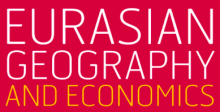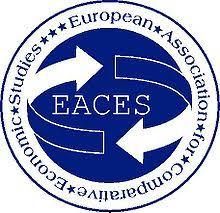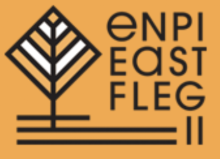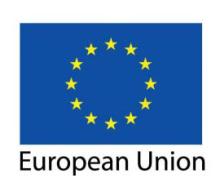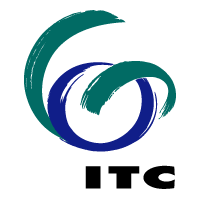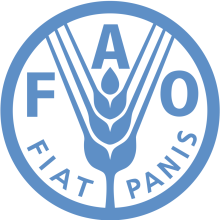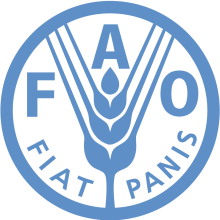Le bibliothèque du foncier comprend des ressources provenant de plus de 1 890 fournisseurs d'informations nationaux et internationaux. Découvrez les organisations et les institutions qui utilisent le Land Portal pour partager leurs recherches, leurs données et leurs histoires en libre accès.
Eurasian Geography and Economics
Eurasian Geography and Economics is a bimonthly peer-reviewed academic journal covering economic and political geography as well as macroeconomics of the Eurasian continent. It is published by Taylor & Francis and was established in 1960 as Soviet Geography. It went through a series of name changes: Post-Soviet Geography (1992-1995) and Post-Soviet Geography and Economics (1996-2002) before obtaining its current title in 2002. The journal is edited by Craig Young.
Europe-Asia Studies
Publishes on the history and current political, social and economic affairs of the former communist countries of the Soviet Union, Eastern Europe and Asia.
European Association for Comparative Economic Studies
In an International Conference held in Urbino (Italy) in 1989 a large number of European economists doing research in the field of comparative studies decided to build a new European association in order to further research and scientific exchanges on the subject.
There was, therefore, the establishment of a large promoting committee and of a more restricted organizative committee with the aim to prepare for the founding Conference of the Association. The founding Conference was held in Verona (Italy) on 27-29 september 1990 and saw the participation of around 160 economists of 24 different countries.
About 40% of partecipants were from Eastern Europe and the Soviet Union. The countries rappresented were: Austria, Belgium, Bulgaria, Czechoslovakia, Denmark, Finland, France, Japan, Germany (both Western and Eastern Germany), Hungary, India, Israel, Italy, Netherland, Poland, Romania; Spain, Sweden; Switzerland, Turkey, United Kingdom, Usa, Ussr, Yugoslavia. The good scientific level of the Conference and the friendly and informal atmosphere provided by the organizer contributed to a brilliant start of the Association.
The First General Assembly of EACES, held on September 27, 1990, approved the Statute and elected Vittorio Valli (University of Turin) for the post of President. On the following day with a secret ballot there was the election of the other members of the Executive Committee on the basis of a list of candidates freely chosen by EACES member. Seven countries were represented in the executive committee. The status of host country probably contributed to an over rappresentation of Italy in the committee, but the rotation of officers and of the location of general Conferences will correct this imbalances in the future.
The Association was formally registred at a public notary in Turin (Italy) on January, 31, 1991.
Since its foundation the Association has organized nine general Conferences (see Conferences) and a number of specialized workshops in several countries.
The membership has increased to a total number of about 400, including 9 institutional members.
European Commission
European Commission
The European Commission represents the general interest of the EU and is the driving force in proposing legislation (to Parliament and the Council), administering and implementing EU policies, enforcing EU law (jointly with the Court of Justice) and negotiating in the international arena.
European Environment Agency
The European Environment Agency is the agency of the European Union (EU) which provides independent information on the environment.
European Forest Institute
- EFI is an international organisation, established by European States.
- 28 European States have ratified the Convention on EFI.
- EFI have c.115 Associate and Affiliate Member organisations in 37 countries.
- EFI's Headquarters is in Joensuu, Finland, and we also have offices in Austria, Belgium, Croatia, France, Germany, Spain and Sweden, as well as project offices in Malaysia and China.
EFI conducts research and provide policy support on issues related to forests.
- EFI facilitate and stimulate forest-related networking and promote the dissemination of unbiased and policy-relevant information on forests and forestry.
- EFI also advocate for forest research and for the use of scientifically sound information as a basis for forest policies.
EFI's work in the field of policy support includes enhanced support for decision takers and policy makers. EFI hosts the EU FLEGT Facility which supports the EU Forest Law Enforcement Governance and Trade (FLEGT) process in developing countries, related to the implementation of the EU FLEGT Action Plan. We also host the EU REDD Facility, which supports partner countries in improving land use governance as part of their effort to slow, halt and reverse deforestation.
European Geosciences Union
EGU, the European Geosciences Union, is Europe’s premier geosciences union, dedicated to the pursuit of excellence in the Earth, planetary, and space sciences for the benefit of humanity, worldwide. It was established in September 2002 as a merger of the European Geophysical Society (EGS) and the European Union of Geosciences (EUG), and has headquarters in Munich, Germany.
European Neighborhood and Partnership Instrument East Countries Forest Law Enforcement and Governance II Program
The FLEG II Program aimed to improve forest law enforcement and governance in 7 countries: Armenia, Azerbaijan, Belarus, Georgia, Moldova, Russia, and Ukraine, which have all together more than 20% of the world's forests.
European Research Studies Journal
European Research Studies Journal is a refereed publication and is designed to cover a wide variety of topics in the fields of Business and Economics in general including Banking, Financial Services and Internal Controls, Accounting and Finance, Health Economics, Tourism, Maritime Studies, Transport and Logistics, Energy and Environment with reference to European Integration. It aims to act as a guide for new developments and prospects in different aspects of economic thought and business methodologies and it is programmed to come out two to four times a year. Papers are invited both from academic economists as well as practitioners.
European Scientific Journal
Founded in Europe in October 2010, The European Scientific Journal (ESJ) is a venue for publishing scholarly works from across the globe. The ESJ actively solicits authors and reviewers from diverse countries and academic settings to reflect our international orientation.
Our values include fairness, agility, professionalism, and internationalism. Our commitment to fairness includes publication charges that are reasonable and affordable. Our commitment to agility means that submitted papers receive prompt and thorough peer review. Our commitment to professionalism includes adhering to the highest publications standards regarding plagiarism, authorship, animal studies, human studies, and disclosure of conflicts of interest. Internationalism means that we actively solicit scholarly contributions worldwide.
The Editorial Board of ESJ consists of an extensive network of experts spanning a variety of domains of knowledge. Many are prestigious academicians at one of the ESJ partner universities, prior ESI conference participants, or contributing authors to the ESJ.
As a peer-reviewed and open-access journal, the European Scientific Journal (ESJ) publishes research articles and literature reviews in English, French or Spanish. This monthly issued publication of the European Scientific Institute (ESI) punctually creates a new edition on the last day of the calendar month in three major sections:
European Space Agency
The European Space Agency (ESA) is Europe’s gateway to space. Its mission is to shape the development of Europe’s space capability and ensure that investment in space continues to deliver benefits to the citizens of Europe and the world.
ESA is an international organisation with 22 Member States. By coordinating the financial and intellectual resources of its members, it can undertake programmes and activities far beyond the scope of any single European country.
What does ESA do?
ESA’s job is to draw up the European space programme and carry it through. ESA's programmes are designed to find out more about Earth, its immediate space environment, our Solar System and the Universe, as well as to develop satellite-based technologies and services, and to promote European industries. ESA also works closely with space organisations outside Europe.
European Tropical Forest Research Network
The European Tropical Forest Research Network (ETFRN) is a network on forests and development, which aims to ensure that European research contributes to conservation and sustainable use of forest and tree resources in tropical and subtropical countries.
ETFRN was established in 1991 in response to the growing concernes on the rapid deforestation occurring particularly in the tropics, and the European Commission's desire to mobilise European research to address this challenge.
Objectives: The goal of ETFRN is to ensure that European research contributes to conservation and sustainable management of forests and tree resources in tropics, subtropics & Mediterranean. ETFRN aims to achieve its goal by:
promoting forest research partnerships and collaboration between the South and Europe
developing and promoting dialogue between researchers, policy makers, and forest managers and others influencing the forest environment
promoting increased coherence and co-ordination of European research capability in tropical forest research
Tropenbos International is ETFRN's coordinating member and national focal point in the Netherlands.
ETFRN provides a range of services, including ETFRN News, which comprises theme-based issues on current research relevant to the international development agenda, such as Financing Sustainable Forest Management; Non-Timber Forest Products; Forests, Water and Livelihoods; Forests and the MDGs, and; Forests and Conflicts.
European Union
The European Union is a unique economic and political union between 28 European countries that together cover much of the continent.
European Union
The EU was created in the aftermath of the Second World War. The first steps were to foster economic cooperation: the idea being that countries that trade with one another become economically interdependent and so more likely to avoid conflict.
The result was the European Economic Community (EEC), created in 1958, and initially increasing economic cooperation between six countries: Belgium, Germany, France, Italy, Luxembourg and the Netherlands. Since then, a huge single market has been created and continues to develop towards its full potential.
Evidence and Lessons from Latin America
Evidence and Lessons from Latin America (ELLA) is a knowledge sharing and learning platform, funded by the UK Department for International Development:
- it shares knowledge of recent Latin American experiences on selected economic, environmental and governance issues
- it supports learning between Latin American, African and South Asian countries
- it provides a networking platform for organisations and individuals to link to Latin America
ELLA is synthesising knowledge of Latin American countries’ recent experience on more than 20 policy and practice issues in economic development, environmental management and governance. Some experiences are innovative, others are tried and tested. Themes have been chosen on the basis of topicality, likely demand and known contributions from Latin American countries.
ELLA is managed by a consortium of Southern and Northern based development research and practice organisations. The Latin America regional office of Practical Action Consulting (PAC), based in Lima, Peru, leads ELLA management.A network of three Latin American Regional Centres of Expertise produces the ELLA knowledge materials and leads the Learning Alliances:
- GRADE, a think tank based in Peru, leads on economic issues
- SSN Brazil, a research and practice organisation based in Rio de Janeiro, leads on environmental issues – with support from IIED-AL, Argentina
- Fundar, a research and advocacy organisation based in Mexico, leads on governance issues
Evidence On Demand
Evidence on Demand was a resource service providing high-quality information in the fields of climate, environment, infrastructure, and livelihoods. The information hub provided access to a broad range of documents, learning resources and technical expertise. One of the key functions of the service was to assist U.K. Department for International Development (DFID) advisers and the wider international development community in making informed, evidence-based decisions. The expert team behind Evidence on Demand was co-led with IMC Worldwide Ltd in a joint venture.
Sample Activities
- Provided support to DFID via quality-assured learning products and services such as topic guides, training support and e-learning, quarterly e-bulletins, development of structured professional development materials, and a shared document library.
- Developed and maintained a HelpDesk Facility to provide DFID with rapid access to high-quality evidence and knowledge products such as document searches, synthesis of reviews, literature reviews, briefing notes, preparation of technical specifications, and short expert reviews.
- Engaged high-quality expertise to undertake studies or new research, provided assistance with programme development, and supported DFID with additional expertise on complex issues.
Select Results
- HelpDesk service handled up to 80 requests per year.
- Successfully elicited regular contributions from top academics and people on the front line of development work.
- Launched website feature “Talking Point,” which provides a space for expert comment and opinion on issues surrounding climate, environment, infrastructure, and livelihoods.
Evonomics
Launched in October 2015 by founding editor Robert Kadar with support from Joe Brewer, David Sloan Wilson, The Evolution Institute, and Steve Roth — who now serves as publisher — Evonomics has emerged as a powerful voice for the sea change that is sweeping through economics. Evonomics’ content attracts hundreds of thousands of readers a month, and it touches millions of people a week across the web.
Expertise France
Expertise France, also known an Agence Francaise d'Expertise Technique Internationale, is the French agency for international technical expertise created by the merger on 1 January 2015 between six French technical assistance operators (FEI, ADETEF, ADECRI, SPSI, ESTHER, INTER).
Its role is to help implement French policy on cooperation, development assistance and economic influence. Expertise France endeavours to meet the growing demand in developing, emerging and European neighbourhood countries for expertise in building public policies and addressing institutional, economic, demographic, social and environmental challenges.
F1000Research
F1000Research is an Open Research publishing platform for scientists, scholars and clinicians offering rapid publication of articles and other research outputs. It includes publications in the areas of Natural Sciences, Medical and Health Sciences, Social Sciences, Engineering and Technology, Agricultural and Veterinary Sciences, and Humanities and the Arts.
F1000Research also maintains a specific gateway on Agriculture, Food & Nutrition, where researchers, policymakers and practitioners can disseminate and find research in this field, including publications on land governance issues.
Faculdade Latino-Americana de Ciências Sociais
A Faculdade Latino-Americana de Ciências Sociais (Flacso) é um organismo internacional, autônomo e de natureza intergovernamental, fundado em 1957 pelos Estados Latino-Americanos que acolheram uma recomendação da XI Conferência Geral da Organização das Nações Unidas para a Educação, a Ciência e a Cultura (Unesco).
Atualmente, é composta por 18 Estados-membros que desenvolvem atividades acadêmicas, pesquisas e modalidades de cooperação em 13 países da América Latina e do Caribe. Todas essas unidades compõem o Sistema Flacso.
Facultad Latinoamericana de Ciencias Sociales Argentina
Sede en Argentina de la Facultad Latinoamericana de Ciencias Sociales (FLACSO), una organización intergubernamental regional autónoma para América Latina y el Caribe, dedicada a la investigación, docencia y difusión de las ciencias sociales.
Facultad Latinoamericana de Ciencias Sociales Chile
La Facultad Latinoamericana de Ciencias Sociales (FLACSO- Chile) es un organismo internacional con más de medio siglo de existencia, autónomo, regional, de carácter académico e interdisciplinario con una visión amplia y crítica de las Ciencias Sociales. Es un centro de Pensamiento Latinoamericano orientado a promover el desarrollo económico de la sociedad, la reducción de la desigualdad, el fortalecimiento integral de la democracia y el libre intercambio de ideas y visiones críticas de la realidad.
Facultad Latinoamericana de Ciencias Sociales Ecuador
La Sede de FLACSO en Ecuador fue establecida en 1974, mediante un acuerdo entre el Estado ecuatoriano y el sistema internacional de FLACSO. La institución forma parte del sistema universitario ecuatoriano y fue reconocida por la Ley de Educación Superior en el año 2000. La Sede goza de autonomía administrativa y financiera en concordancia con su acuerdo constitutivo.
Misión
FLACSO Ecuador construye y difunde conocimientos y saberes en el campo de las ciencias sociales y las humanidades a través de la docencia y la investigación crítica y creativa. Sus principios son el pluralismo y la autonomía académica en la búsqueda de contribuir al desarrollo de las diversas corrientes del pensamiento latinoamericano y andino, y de promover la justicia, la equidad y la inclusión social.
Facultad Latinoamericana de Ciencias Sociales Guatemala
FLACSO-Guatemala inicia actividades en 1987, en coincidencia con el ambiente propicio que ofrecía la transición a la democracia. Fue reconocida por el Estado de Guatemala por medio del Decreto Legislativo 96-87.
Principió como Proyecto para convertirse en Programa en agosto de 1989 (CS XIII/08, México D.F., 8/28/1989), y luego en Sede Académica en 1998 (Resolución AGO XII/05, México D.F., el 15 de mayo de 1998), al ratificar la Presidencia de la República el acuerdo inicial firmado en 1987.
Ser Sede constituye un reconocimiento a la calidad del trabajo desarrollado por la Facultad, tanto por parte del sistema FLACSO que lo acredita, como del Estado de Guatemala en el que dicha unidad funciona, e implica que la docencia y la investigación se realizan de forma permanente.
Misión
Conducir programas de docencia, investigación e incidencia de alta calidad para contribuir a la construcción de un pensamiento plural, crítico y propositivo y la transformación de la realidad social
guatemalteca y centroamericana en el marco del desarrollo y la democracia.
Objetivos estratégicos
a) Formar profesionales de postgrado a nivel de maestría y doctorado acreditados con altos estándares de excelencia académica y pertinencia social.
b) Promover investigaciones orientadas a la producción de conocimientos que estimulen la reflexión sobre la realidad y problemáticas específicas del contexto guatemalteco y centroamericano.
c) Realizar actividades de incidencia académica orientadas a promover la reflexión, el análisis y el debate entre actores de diferentes ámbitos sociales, sobre determinadas problemáticas sociopolíticas y culturales de carácter estratégico para el desarrollo de la sociedad.
d) Consolidar un modelo de gestión académica y administrativa para responder al objetivo superior.
Faculty of Geo-Information Science and Earth Observation
The Faculty of Geo-Information Science and Earth Observation (ITC) of the University of Twente provides international postgraduate education, research and project services in the field of geo-information science and earth observation using remote sensing and GIS. The aim of ITC's activities is the international exchange of knowledge, focusing on capacity building and institutional development in developing countries and emerging economies.
Faculty of Geo-Information Science and Earth Observation at the University of Twente
ITC is the University of Twente’s Faculty of Geo-Information Science and Earth Observation.
Our mission is to develop capacity, particularly in less developed countries, and to utilize geospatial solutions to deal with national and global problems.
Our vision is that spatial solutions will play an increasingly important role in meeting many of mankind’s complex challenges (often wicked problems), such as climate change, population growth, and related claims for sufficient and secure food, water, energy, health, land and housing provision.
Therefore, our goal is to enhance our standing as an internationally recognized knowledge hub in the spatial domain, renowned for its collaborative educational and research activities, particularly in the global South.
CAPACITY DEVELOPMENT
For ITC, capacity development implies building capacity in domain-specific knowledge, skills and attitude at the individual and institutional/societal levels. ITC therefore aims to achieve both individual and collaborative capacity building. This development reflects what happens in modern societies with a strong private sector. Individual capacity development aims will be addressed through education.
RESEARCH
ITC is an internationally recognized leading research entity in geospatial sciences, with an emphasis on geo-information science and earth observation. We focus on fundamental and problem-solving research, with an eye to those complex global challenges where spatial information can make a real difference.
EDUCATION
We equip our students to tackle one of mankind’s greatest challenges: balancing the development of natural resources with the preservation of our earth by providing geo-information and geo-information management tools. Our students will learn to take a multidisciplinary approach to problem-solving, benefiting from the University of Twente’s pioneering position in an exciting new field of research: the interaction between new technologies and society. Master’s students at ITC, will be encouraged and trained to break through existing academic boundaries. Study with us and become a savvy, internationally confident professional, capable of developing new knowledge and translating it into practical solutions for real-world problems.
ITC’s combination of geo-information science and remote sensing in postgraduate education offered in different domains is unique in the world.
FAO Legal Office
The FAO Legal Office provides in-house counsel in accordance with the Basic Texts of the Organization, gives legal advisory services to FAO members, assists in the formulation of treaties on food and agriculture, for which the Director-General acts as Depositary, publishes legal studies and maintains a database (FAOLEX) of national legislation and international agreements concerning food and agriculture (including fisheries, forestry and water).
FAO Regional Office for Africa
The Regional Office for Africa advocates for strong regional partnerships and timely Country Office support.
The substantive technical work of the Regional Office focuses on co-ordinating normative work and its policy dimensions and leadership of the regional dimension of the Organization’s technical networks.
Three main areas characterize the African regional dimension: priority setting and strategic planning, partnership development, and resource mobilization.
The major actions of the Office in Africa put a particular emphasis on:
- Country Offices are the key to FAO's success
- Stronger, more demand-driven multi-disciplinary technical teams
- Intensified regional administrative and operational support and Country Office oversight
- Full capitalization of the potential for extra-budgetary funding
- Focused policy dialogue
- Strengthened support to Pan-African institutions
The Office works at greater focus on high level dialogue and policy formulation in partnership with regional organizations, as well as greater support to the other decentralized offices through closer oversight and support. With its skill-mix technical teams, it makes a point in focusing on country level activities by the multi-disciplinary teams as well as stronger, specific partnerships with the Regional Economic Communities.
FAO Regional Office for Asia and the Pacific
The vision of the FAO office in Bangkok is a food-secure Asia and the Pacific region.
Its mission is to help member countries halve the number of undernourished people in the region by raising agricultural productivity and alleviating poverty while protecting the region’s natural resources base.
Agricultural growth in Asia-Pacific has stagnated in recent years, with a serious decline in agricultural investment, and depletion and degradation of natural resources in the face of continued population growth.
The benefits of the green revolution have now been fully realized and there are no revolutionary technologies on the horizon that can rapidly and sustainably reinvigorate agriculture.
Outward migration, especially of the young generation, has led to the "greying" and feminization of the sector; the coping mechanisms of poor households are few, given their limited assets and the fact that a deep recession occurred so soon after the food crisis.
Climate change will impact agriculture in many ways, particularly in areas vulnerable to natural disaster.
The opening of markets improved the mobility of people, goods and services and created employment opportunities for the labour-rich Asia-Pacific economies. At the same time the growing links within the region and with the rest of the world ushered in risks of transboundary plant pests and animal diseases.
FAO Regional Office for Europe and Central Asia
FAO’s Regional Office for Europe and Central Asia – located in Budapest, Hungary – provides and coordinates FAO policy and technical assistance to Member Countries in the Region.
The Regional Office is also responsible for preparing the biennial FAO Regional Conference for Europe, where Member Countries establish priorities FAO’s work in the region.
Extending from Lisbon to Vladivostok and from the Arctic Circle to the Pamir Mountains of Central Asia, no region is more vast or diverse than FAO’s Europe and Central Asia region.
With 53 Member Countries and one Member Organization (the European Union), the region’s food and agriculture challenges range from cooperation on capture fisheries to improving nutrition levels, from coping with livestock diseases to getting reliable agricultural census data, from cleaning up and managing obsolete pesticides to setting up protocols to make sure food is safe to eat, from conserving crop genetic resources to expanding access to lucrative international markets.
More than half the region’s countries are members of the European Union or candidates for accession to the EU. Since 1990, many of the national economies have been transitioning to greater market orientation and private ownership of farms and agri-business. Historically, the region has been home to several “breadbasket” zones, with significant production of grains in addition to fruit, vegetables, meat and fish. Hardwood and evergreen forests cover extensive parts of the region, calling for management techniques that use forest resources without using them up.
FAO Regional Office for Latin America and the Caribbean
Latin America and the Caribbean was the first region to commit to the complete eradication of hunger through the 2025 Hunger-Free Latin America and the Caribbean Initiative. This renewed political commitment is based on the full conviction that eradicating hunger in the Region is an achievable target.
Latin America and the Caribbean is at the forefront of the global fight against hunger. It is the Region that has made the most progress in reducing the percentage and total number of people suffering from hunger in the past 20 years.
Thanks to successful public policies implemented by Governments, coupled with economic growth, hunger fell from 14.7% in 1990-93 to 7.9% in 2010-2013. Child malnutrition was also halved in the same period, while the total number of undernourished people decreased from 59 million in 1990 to 47 million in 2013.
The Region was the first to commit to the complete eradication of hunger through the 2025 Hunger-Free Latin America and the Caribbean Initiative (HFLACI). This renewed political commitment is based on the full conviction that eradicating hunger in the Region is an achievable target.
Eight Member Nations have already fully eradicated hunger, 15 have achieved the first Millennium Development Goal of reducing by half the proportion of people suffering from hunger, and 11 have also achieved the World Food Summit target of reducing the proportion as well as the total number of undernourished people.
Food security policies and programmes, as well as the Region's role as one the world's main food producers, place Latin America and the Caribbean at the forefront of the global fight against hunger. Many of its flagship initiatives are being adapted to other world Regions in strengthening global food security.
The FAO Regional Office supports Member Nations by monitoring food security levels; assisting in the design and implementation of hunger-eradication strategies, laws and programmes; and promoting family farming, agricultural and rural development and climate-change adaptation policies.
FAO places a special emphasis on vulnerable communities - with a particular focus on women, indigenous and native peoples - and works closely with Member Nation Governments, civil society and international cooperation stakeholders to empower social actors and local communities in exercising a leading role in their own development.

